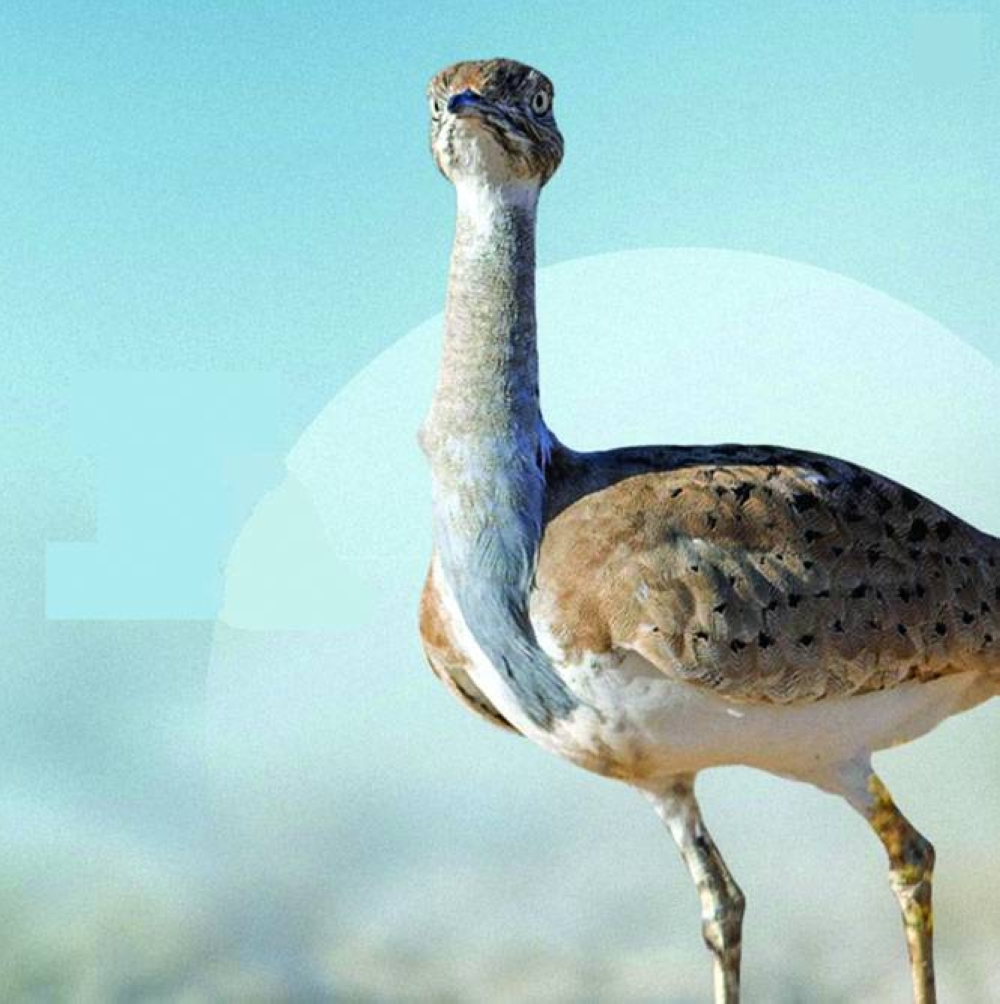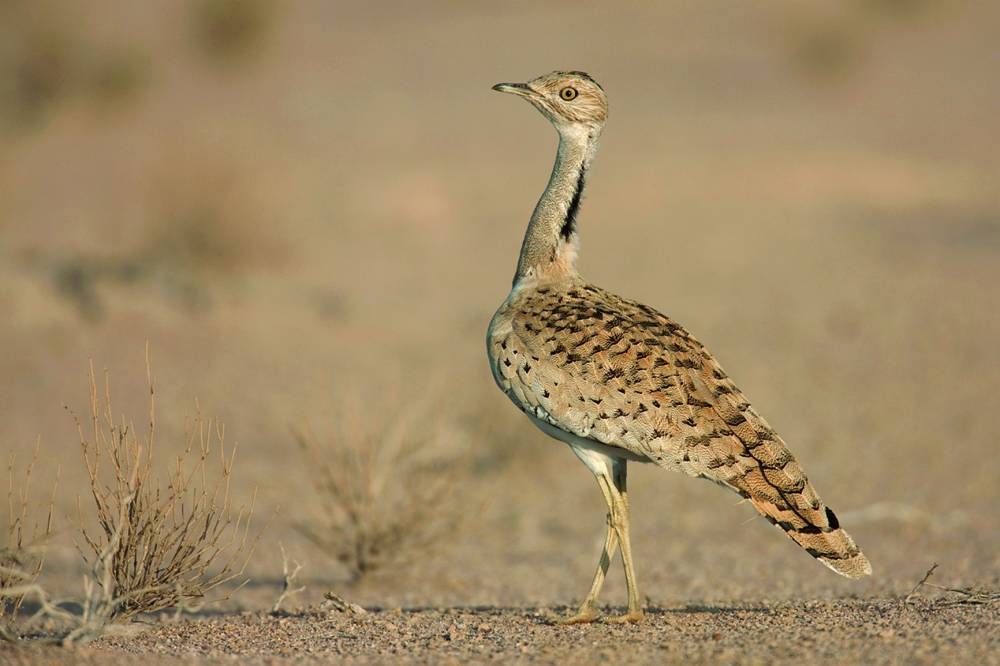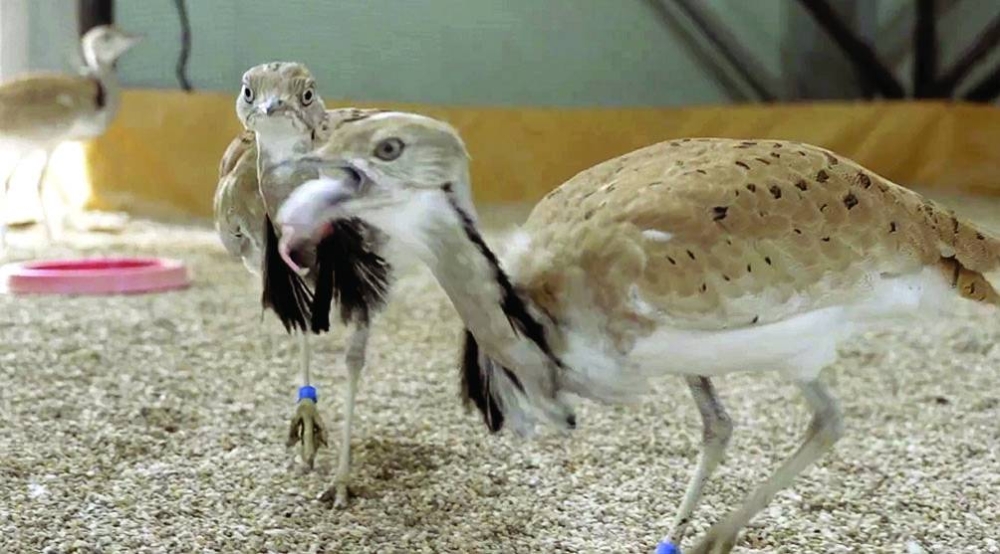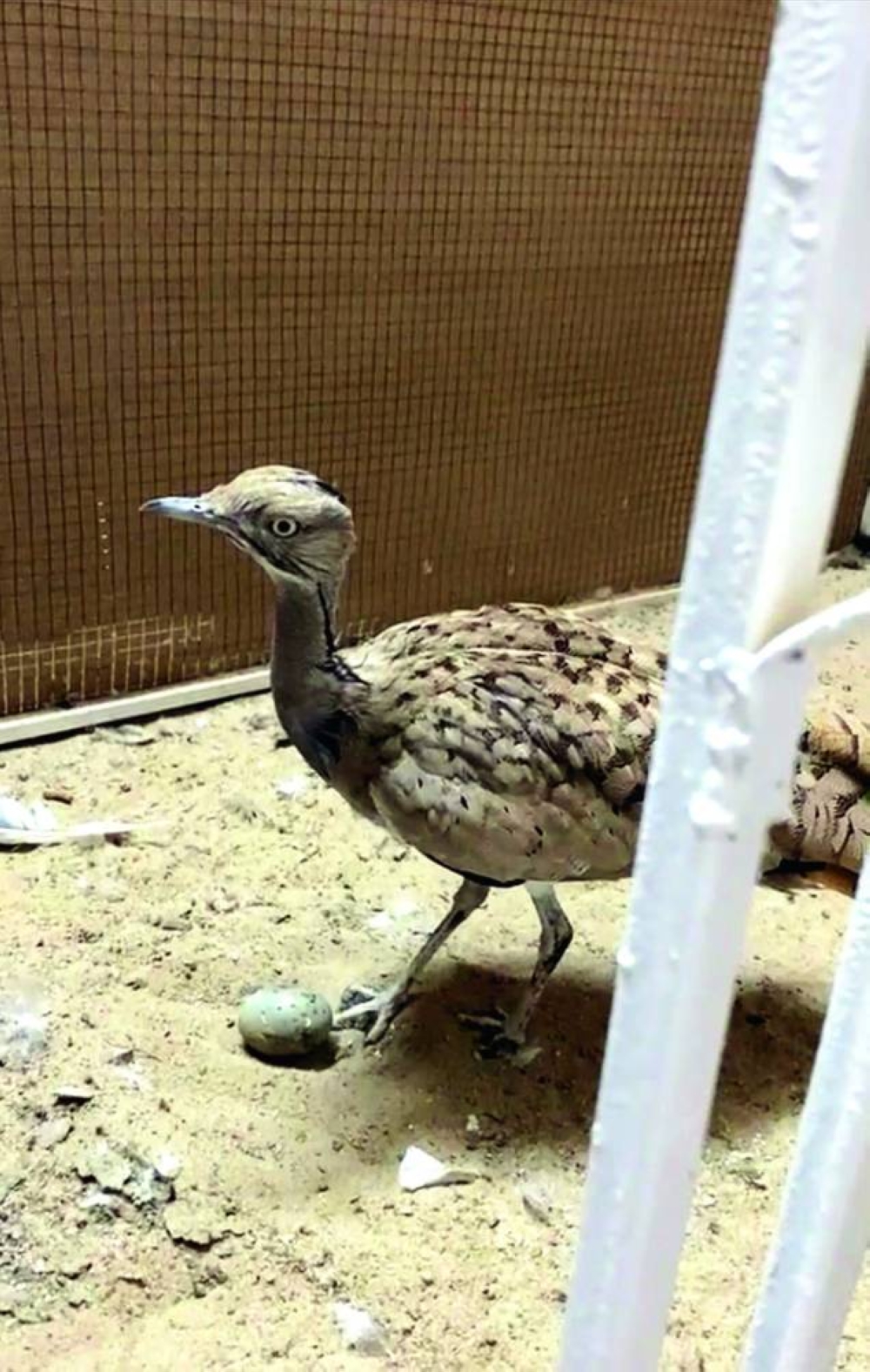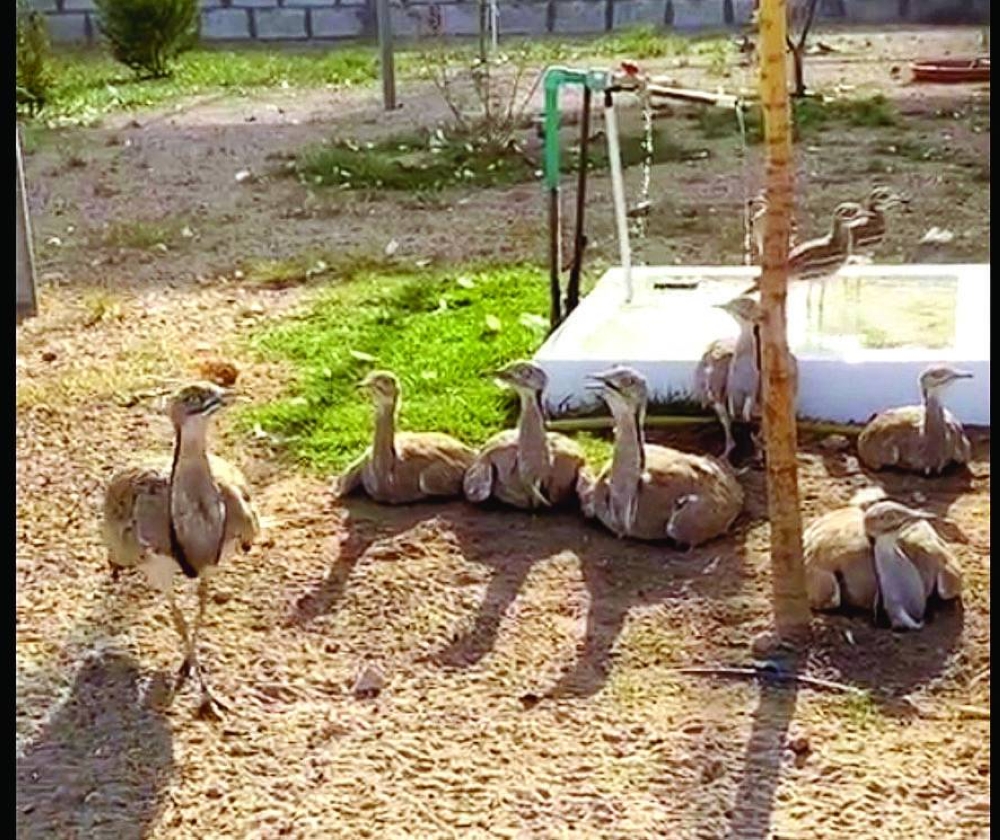The activity of training and breeding of the Houbara bustard bird is gaining popularity among farm owners across the country, both for economic and environmental purposes.
Speaking to local Arabic daily Arrayah, some of them said that these birds are highly preferred by Qataris, with many keen to use them for falcon hunting during the official hunting seasons.
The Ministry of Environment and Climate Change (MoECC) is also helping to encourage Qatar citizens to raise such birds and increase their numbers as part of maintaining the ecological balance in the country, introducing them to the proper ways of keeping these birds.
The ministry facilitates the process of granting Qatar citizens permits to start projects to raise the Houbara birds, and helps them in the design and construction of the necessary facilities, in addition to supplying the essential consultative services, fodder, medications and other treatments.
The farm owners pointed out that the Houbara bird is not easy to domesticate, as it requires its own space that resembles its natural habitat and should be kept separate from the other birds and animals, therefore requiring the farm to allocate the bird its own buildings.
The MoECC has also made it a condition for those who want to join the project to breed Houbara birds to allow the teams from the ministry to inspect the farm and ensure the suitability of the place.
The farm owners are also required to register the data and information of the hatchlings, as the ministry is the only entity allowed to buy these birds; selling them to private persons is not allowed.
Mohamed Saeed al-Kubaisi, owner of Al Kubaisi Educational Protectorate, who inherited the protectorate from his father, said that it includes a large number of different birds and animals that thrive in the Qatari environment and that he has been successful in breeding them.
He is keen to breed the Houbara bird, voicing regret that his first attempts to breed the bird were unsuccessful as his farm was not properly equipped for this.
Al-Kubaisi said that he has made the necessary modifications, including allocating special places exclusively for this bird, adding that he is keen to maintain closer co-operation with the MoECC in this regard.
Khalid al-Dossari, owner of a Houbara breeding farm, said that at the beginning it was very challenging but eventually he succeeded in producing 30 of these birds.
He also stressed the importance of the efforts and training courses provided by the MoECC.
Farm owner Ibrahim Ali al-Nuaimi said that he has considerable experience in raising and breeding many types of birds, but found that the Houbara was not easy to domesticate and breed.
He said he has thus benefited a lot from the training course organised by the ministry.
Al-Nuaimi said that raising Houbara birds requires extreme care, with the avians’ facilities requiring regularly cleaning and sanitisation, and workers employed to exclusively take care of them.
Farm owner Hassan al-Malki al-Jahni said that Qatari falconers love this bird in particular and consider it a precious prey during the falcon hunting season, as it represents to them big challenge and makes them feel proud of their falcons when they succeed in hunting them.
He added that the MoECC has created a dedicated centre for breeding the Houbara bird, which is considered endangered due to the difficulties involved in domesticating it.
